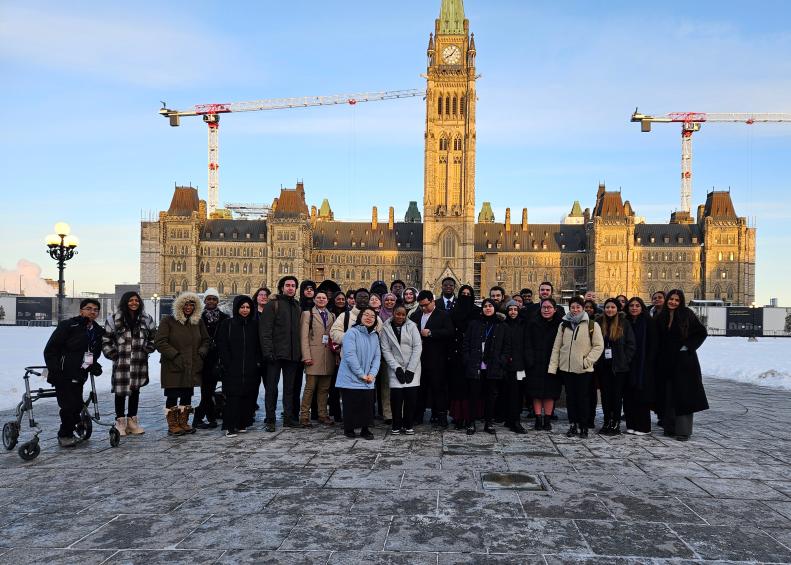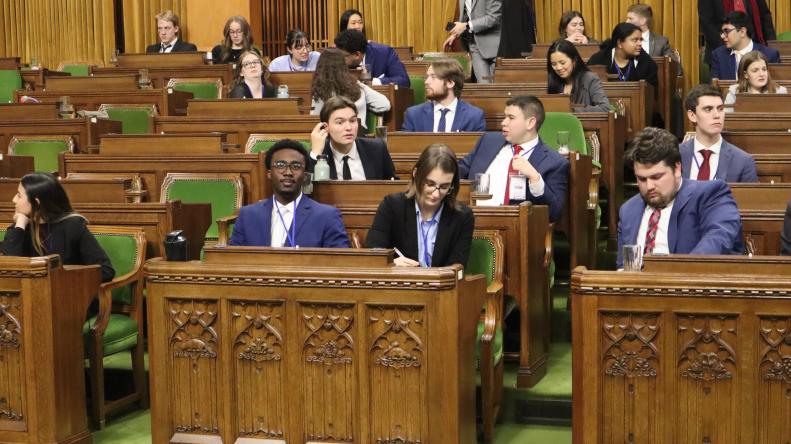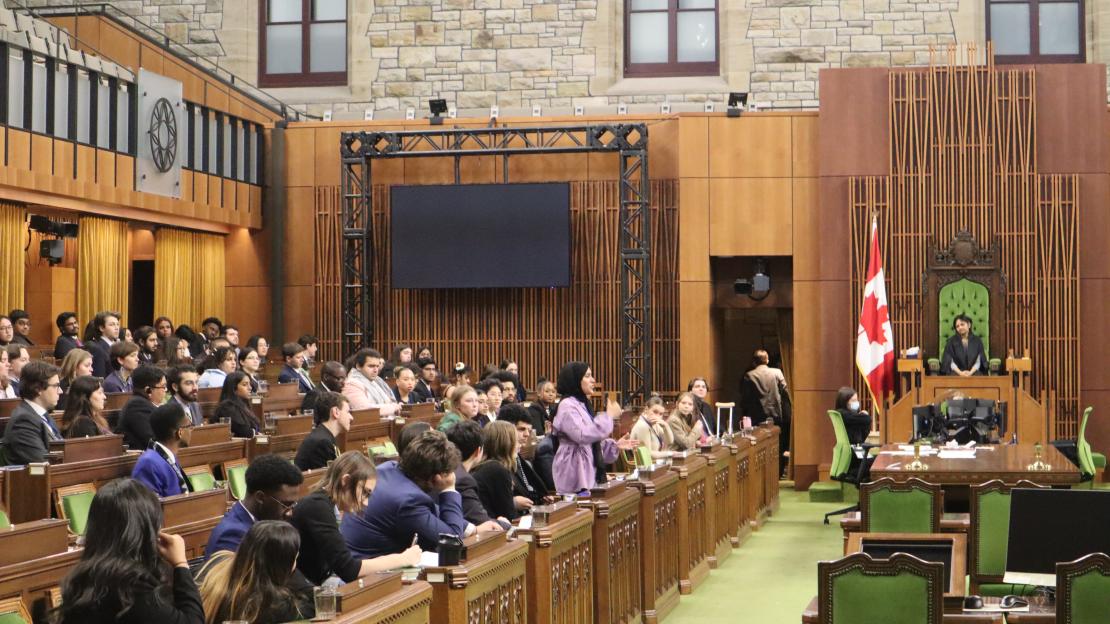It took months of work to get the cheque in Khalil-Najir Miles’ hands, but his bank had a waiting period to cash it. If he couldn’t get the money then and there, he couldn’t pay the bus coming to take almost 50 students to the House of Commons the next morning.
The trip to Ottawa was the grand finale of Miles’ model parliament, a program for political science students in the vein of a mock trial or Model United Nations. Students had spent five months creating parties and platforms, holding elections, drafting bills, filibustering ad nauseum, all in the build-up to debates as mock members of parliament in Canada’s real political epicentre.
“I knew what would really mean a lot to the students was being in the House of Commons, that may be the only time they ever got the opportunity to be in those caucus seats,” says Miles, a second-year student in political science.
Miles had been told “no” every step of the way. He’d based his model parliament on the one at the University of Ottawa, running more than 20 years strong, and thus wanted to partner the programs, instantly connecting his members with the 300 other students participating that year alone. But he says many at uOttawa hold their parliament sacred, and that made some wary of welcoming another school into the mix.
“My idea was to continue working, and if people saw the results, they’d reach out a helping hand,” says Miles, vice president of the Political Science Students’ Association (PSSA) and the director of political science with the Scarborough Campus Students’ Union (SCSU).

He made a pitch deck and lobbied for everything U of T Scarborough students could bring to the table until, eventually, the uOttawa students’ union agreed. Miles put together a team of students — Alizeh Sohail, who handled events, Malika Derrell for finances, Marlon Mortilla for events and Carolyn Gao on admin — and with them, the PSSA and the SCSU, launched the Parliamentary Series.
Filling all 50 seats (the same number as the real deal) was a struggle until they hosted a kick-off event with local MPP Vijay Thanigasalam — after that, more than 100 students wanted in. Third-year political science student Taiba Ahmed was one of them.
“I took a lot from this,” says Ahmed. “This model parliament has the capabilities of becoming really great and renowned. If we make it a big thing, it becomes part of our culture.”
Policymaking through Pokémon
uOttawa’s model parliament is known for the satirical takes on its doctrine of “fake politics, real procedure,” wherein students use fictional parties to act out the actual processes of Canadian policymaking. This year’s edition, which had 10 parties including two from U of T Scarborough, was no different. The Pokémon Party was a platform dedicated to animal rights (specifically, extending them to imprisoned digital monsters), while the Skeleton Party was all about bone health and calcium awareness, hence proposing a bill to replace all water in water fountains with milk.
As a long-time video game aficionado, Ahmed was quick to create a party advocating for gamers. Though initially an underdog, she merged with the Skeleton and Pokémon parties, became the leader of the official opposition and swayed a sizeable number of students to their side in the weeks before the final showdown in the House.

Time was running out for Miles. He had to get the money to take all 46 available students to the capitol for the exact two days uOttawa’s parliament would be there, but try as he might, he’d had no luck raising money. People told him it would be too expensive, and besides, couldn’t he just do the final debates in a classroom or office? It was his turn to say “no.”
He booked the bus and kept pushing, and with only days before the trip, the Office of Student Experience and Wellbeing came through with the cheque, then it was off to the bank to petition his way up the chain of command and get around the hold period. Hours later, they were headed for Ottawa.
They debated, they deliberated, and they marked the first time a model parliament at U of T made a trip to the House of Commons. Miles is now working to bring the program back this September, with an eye on using real politics. With the right funding, he’s also hopeful he can double the number of seats.
“I still haven’t really grasped that this actually happened yet,” he says. “Once you show you’re committed, people will be there to help.”
